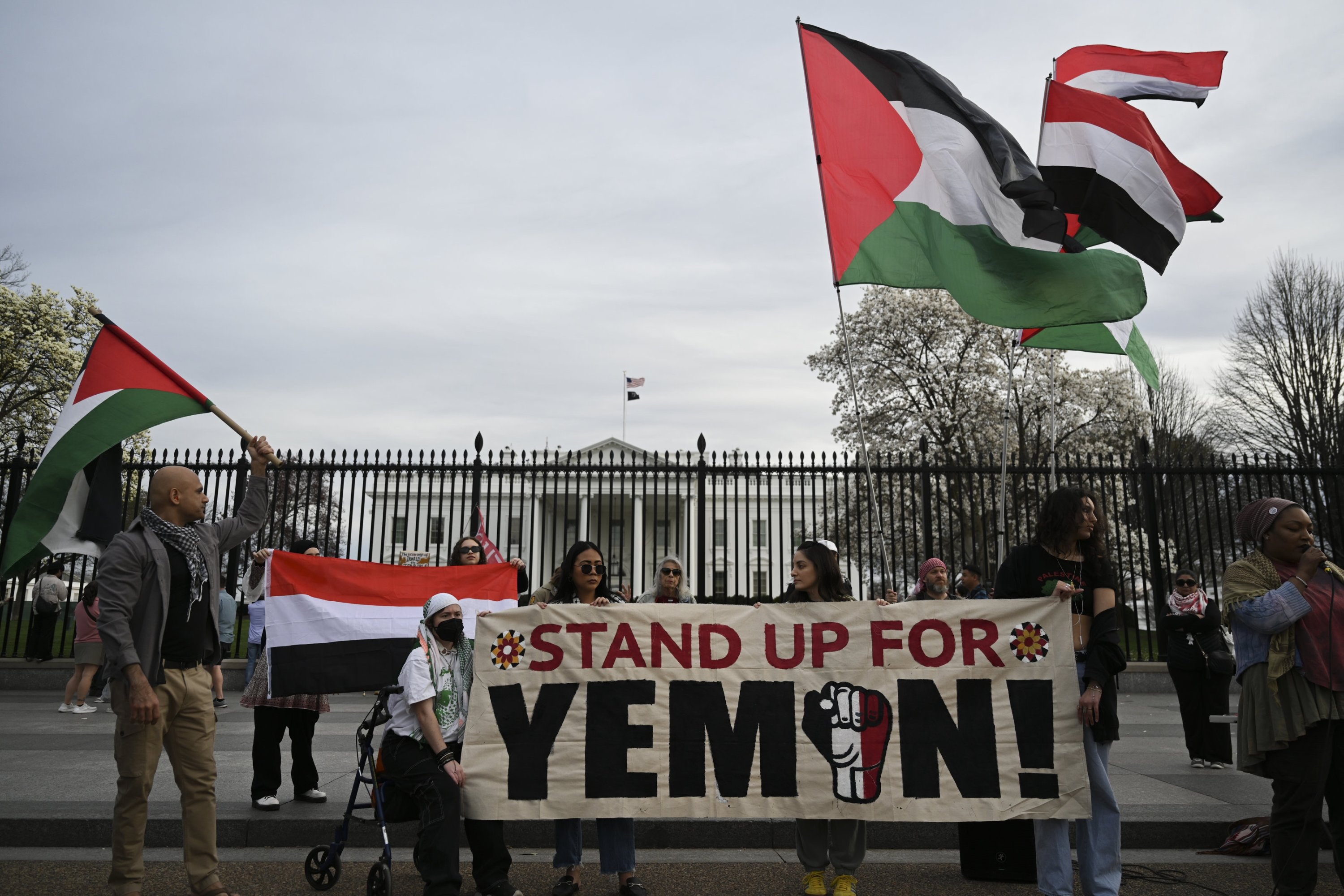In recent years, the Middle East has been undergoing a multilayered transformation process that goes beyond the usual tremors. This process, which began with the Arab Spring, has witnessed deep structural ruptures that have changed the strategic fabric of the region. The basic parameters of this transformation manifest themselves at the geopolitical, political and sociological levels, and these layers are often intertwined into a whole network of crises.
Today, we stand at the threshold of a new era in which these three transformations are unfolding simultaneously and with even greater intensity. Oct. 7 stands out as the starting point of this period, which will deepen with the fall of the former regime leader Bashar Assad in Syria and will become even more complex with the return of Donald Trump to the White House. However, all these developments have one thing in common: the Middle East has become a geography struggling with multiple crises at the same time. From a historical perspective, the old order in the Middle East is dying, but the new has yet to be born – and what is emerging may not be something the region welcomes.
Israeli question
The most prominent example of the crystallization of these multiple crises is the Israeli question. Israel is not only an actor that has the potential to influence the current crises in the region in multifaceted ways; it also stands out as a structure that is experiencing a multilayered crisis within itself. Israel’s current expansionist and aggressive strategy has historically always existed in the Palestinian context. However, at this point, it is evident that this strategy has reached a level of comprehensiveness that affects not only Palestine but also all regional dynamics. The most striking and tragic outcome of this policy is the genocidal violence in Gaza.
Moreover, it is noteworthy that Israel does not feel under pressure despite an act of violence on this scale. Of course, the direct and unconditional support of the United States to Israel plays an important role here, as does the silence and sometimes even indirect support of the international community, especially Europe. The developments in Gaza should not only be considered a Palestinian issue but also a devastating crisis that could implode the entire Middle East system. In this sense, Gaza has become the center of multiple Middle Eastern crises and even one of the main focal points feeding these crises.
The normalization of the genocidal strategy in Gaza, or at least the attempt to normalize it at the international level, triggers other lines of crisis. The new post-Oct. 7 era in Lebanon and the weakening of Hezbollah, Iran’s declining regional influence and Gaza’s function as a geopolitical breaking point all point to the emergence of a new power map in the Middle East.
Israel’s crisis-producing potential is not limited to Gaza. A similar picture is emerging in Syria. Israel has openly declared that it does not want a strong centralized structure to be established in Syria and has developed a multilayered strategy toward this goal. The policies pursued following the fall of the Assad regime reflect not only a preference for a weak and fragmented Syrian government but also a deliberate effort to hinder regional actors –particularly Türkiye – from contributing to Syria’s stabilization. Israel is actively working to constrain Türkiye’s influence on the ground while simultaneously engaging in anti-Türkiye lobbying efforts in the United States aimed at undermining the Trump administration’s Syria policy. These actions are further reinforced by diplomatic initiatives across Europe designed to shape a Syria policy that excludes or counteracts Türkiye’s role.
Israel’s strategic moves are not only directed against Türkiye but also impact Russia, the Gulf countries and even the new Damascus administration. Israel’s new relationship with Moscow, its efforts to shape the Syrian policies of the Gulf countries, and its attempts to reignite the possibility of civil war and instability by fueling sectarian conflicts within Syria all indicate how multifaceted an actor Israel is in the region.

Syria’s uncertain future
Another pillar of this multiple-crisis structure is Syria. After the fall of the Assad regime, the country is still not fully stabilized. Although the new Damascus administration enjoys some regional support, it has not yet developed the political capacity to assert its sovereignty over the entire country. The security environment remains fragile, and the stability necessary for economic development has yet to be established. Although there are some signs of the lifting of international sanctions, the process is slow and full of uncertainties.
Syria’s fragile situation creates an area of tension where political and sociological fault lines converge, making it one of the most critical parts of the Middle East’s multiple-crisis system. Even the relative decline in Iran’s influence does not change this situation, as Iran still has the capacity to fuel sectarian divisions in Syria. The U.S. relationship with the PKK terrorist group’s Syrian wing YPG also continues to contribute to Syria’s uncertain future. Although the agreement reached between the YPG and the new Damascus administration is promising, it raises serious questions about its viability and longevity. The fact that a political order has not yet been fully established in Syria keeps the country at the center of potential crisis zones. Syria’s strategic potential lies in the Ahmed al-Sharaa administration’s approach to establishing a new political order, which could serve as an example for the region. The construction of this political order on a just and inclusive, even democratic, basis could also create a new political foundation in the region.
Weakening Iran
Iran is another important actor in the multiple crises in the Middle East. The aftermath of Oct. 7 and the fall of the Assad regime on Dec. 8, 2024, led to a significant decline in Iran’s strategic influence in the region. This reveals that its expansionist strategy, which aimed to increase its influence since the post-2003 period, is no longer sustainable. Iran now has to search for a new strategic depth to compensate for these losses. However, the U.S.’ return to a policy of maximum pressure and Israel’s constant pursuit of military intervention against Tehran over its nuclear capabilities are narrowing Iran’s room for maneuver.
Even if Iran tries to balance this contraction with support from actors such as China and Russia, it seems unlikely that it will escape American pressure in the short term. This geopolitical squeeze also creates significant pressure on Iran’s domestic politics. Strategic decision-makers in Washington and Tel Aviv argue that this crisis should be turned into an opportunity to use a new military tool against Iran and believe that the current environment is suitable for this.
Yemen is becoming another hot spot in this multiple-crisis landscape. The Trump administration’s military attacks on Yemen suggest that the country may become the scene of greater conflicts in the coming period. Yemen is now seen not only in terms of economic balances in the context of international transportation but also as part of the Gaza-centered military struggle. Iran’s pressure on the Houthis could trigger new crises in the Gulf.

The U.S. ambiguity
Finally, U.S. policies toward the region have themselves become an external dynamic feeding multiple crises in the Middle East. The unconditional support for occupation and expulsion policies in Gaza is causing a rupture that will affect not only the Palestinian people but also all Arab regimes. This crisis in Gaza is no longer cyclical but a historical turning point. Under these circumstances, no Arab country can justify to its domestic public being part of American-centered initiatives such as the Abraham Accords; even if it does, it knows that it would be putting the security of its regime at risk. Therefore, the U.S.’ carte blanche support for Israel and its military intervention-oriented policies are among the most important external factors fueling the multiple-crisis system in the Middle East.
In conclusion, it is highly likely that the Middle East will witness deepening crises in the coming period. These crises have the potential to radically transform not only the regional balance of power but also traditional strategic behavior.


